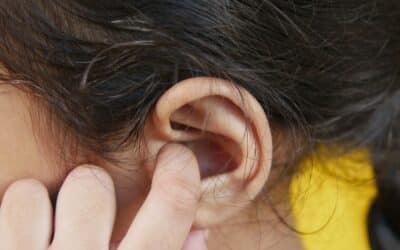Navigating the world of children’s healthcare can be complex, especially when it comes to understanding specialized roles like that of a pediatric audiologist. This article aims to demystify the role of pediatric audiologists, providing parents with essential information to support their child’s hearing.
What is a Pediatric Audiologist?
A pediatric audiologist is a healthcare professional specializing in diagnosing, treating, and managing hearing and balance disorders in children. Unlike general audiologists, they are specifically trained to work with infants, toddlers, and adolescents.

Key Responsibilities
- Diagnosing Hearing Loss: They use specialized equipment and techniques to test and diagnose hearing acuity in children.
- Hearing Aids and Assistive Devices: If indicated, pediatric audiologists recommend and fit hearing aids or other assistive listening devices.
- Counseling and Support: They provide counseling to families, helping them understand and manage their child’s hearing loss, hearing aids, and assistive devices.
- Collaboration with Other Specialists: Often, they work alongside other healthcare professionals such as a speech-language pathologist or ENT specialist to provide comprehensive care.
Why are They Important?
- Early Intervention: Early detection and intervention can significantly improve language, social, and academic development in children with hearing loss.
- Tailored Care: They offer care that is specifically aligned to the unique needs of each child.
Examples of Practice
- Newborn Hearing Screening: Conducting hearing screenings for newborns to detect early signs of hearing loss.
- Completion of Comprehensive Hearing Evaluations: Using a variety of tests and methods, they determine a child’s hearing and auditory functioning at different sound frequencies and loudness levels.
- Fitting of Pediatric Hearing Aids: Customizing hearing aids for children, considering their active lifestyles and growth.
- School-Based Support: Collaborating with schools to ensure that children with hearing impairments receive the necessary support.
FAQs
- What age groups do pediatric audiologists work with?
- They work with children from birth onward.
- When should my child see a pediatric audiologist?
- If you notice signs of hearing loss, your child has a history of medical issues involving their ears such as chronic ear infections, your child is at risk for hearing loss, or if your child fails a hearing screening at school or during a routine check-up, see a pediatric audiologist.
- How are hearing tests for children conducted?
- Tests are tailored to the child’s age and development, using engaging and child-friendly methods. Some assessments require the child’s active participation while others do not.
- Can pediatric audiologists help with speech delays?
- Yes, as hearing is critical for speech development, they play a key role in identifying and treating hearing loss that may contribute to speech and language delays.
- Are their services covered by insurance?
- Coverage varies, so it’s important to check with your insurance provider. If these services are not covered by your insurance, there may be other resources in your community to assist with payment. If your child participates in the Early Intervention Program, these services are often covered.
Additional Resources
- American Academy of Audiology
- Healthy Hearing
- Who Are Audiologists, and What Do They Do? (asha.org)
- Find Certified Audiologists and Speech-Language Pathologists (SLPs) (asha.org)
- Hearing Health Foundation | Funding Groundbreaking Research for Hearing Loss and Tinnitus
- Learn More About Hearing Loss in Children | CDC
- Local Funding Agencies/Programs for Audiology Services and Hearing Aids (asha.org)
Summary and Conclusion
Pediatric audiologists play a crucial role in the early detection and management of hearing loss in children. Their specialized training ensures that children receive care that correlates with their unique developmental and hearing needs. Early intervention by a pediatric audiologist can significantly impact a child’s language, social, academic, and overall development. Understanding their role and knowing when to seek their expertise is key for parents to ensure the best auditory health and hearing outcomes for their children.




0 Comments